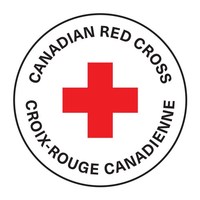Cervical cancer is one of today’s most preventable cancers. Approximatively 570,000 women were diagnosed with cervical cancer around the world in 2018.(1) Among these, more than three hundred thousand women will die. Ninety per cent of these women live in low- and middle- income countries (LMIC). These deaths are preventable.
On this Mother’s Day, the Canadian Red Cross and HPV Global Action would like to focus on women’s health and well-being, by reiterating their commitment to supporting the World Health Organization’s (WHO) targets that must be met by 2030 for countries to be on the path towards cervical cancer elimination through:
- Vaccination: 90% of girls fully vaccinated with the HPV vaccine by the age of 15;
- Screening: 70% of women screened using a high-performance test by the age of 35, and again by the age of 45;
- Treatment: 90% of women identified with cervical disease receive treatment (90% of women with pre-cancer treated and 90% of women with invasive cancer managed).
The Red Cross and HPV Global Action recognize that this global strategy is critical in advancing sexual and reproductive health and rights. Both organizations also understand the challenges to delivering the strategy in fragile and conflict settings, as well as in LMIC where the impact of cervical cancer on women, including mothers, girls and transgender men is the greatest.
This WHO strategy requires an intersectional feminist approach that recognizes the ways in which factors like gender, age, race, ethnicity, education and power shape the offer of and access to services. Many of those at risk or affected by HPV and cervical cancer still lack or have limited access to the health services and education that are critical to eliminating cervical cancer.
The successful implementation of the 90-70-90 strategy could reduce new cases by more than 40% and related deaths by five million within 20 years.(5) To help achieve this, public health policies supporting the WHO strategy should address HPV and its connection to cervical cancer through an intersectional lens to ensure its equitable implementation. Governments should take this opportunity to strengthen healthcare structures for diverse groups, particularly in LMIC and fragile contexts where systems are often challenged by resource constraints and health emergencies such as Zika, Ebola and COVID-19.(6) Equitable policy frameworks and resource allocations can positively impact vaccine acceptance, local supply and delivery, as well as cervical cancer screening practices and the availability of palliative care. These components are critical to ensuring progress on this commitment. International stakeholders are encouraged to prioritize the WHO objectives and work with healthcare providers, researchers, innovators, local actors, women-led organizations and dedicated partners, like the Canadian Red Cross and HPV Global Action, to ensure the WHO global strategy is successful.
As national and international leaders in community health, the Canadian Red Cross and HPV Global Action are reinforcing their dedication to prevention, screening and treatment, with a focus on those most at risk. The organizations are committed to using their global health capacity to improve access to services and information in areas with high prevalence of HPV and cervical cancer, building on foundations in place with existing partners. Other organizations, advocates, leaders and industries such as diagnostic, surgical, vaccine and pharmaceutical companies, are welcome to join us in working toward eliminating cervical cancer using an intersectional feminist approach.
